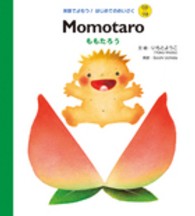Full Description
What if one of Canada's quietest provinces had become a staging ground for a foreign power?
What if the red cliffs and tranquil shores of Prince Edward Island masked something more troubling—something that reached from Charlottetown to Beijing?
Canada Under Siege is an investigation into how the Chinese Communist Party may have quietly infiltrated Canada's smallest province. At the heart of this inquiry is a fundamental question:
How did a place known for simplicity and serenity become a strategic beachhead for elite capture, covert influence, and international subversion?
Through a series of disturbing leads, veteran investigators Michel Juneau-Katsuya (CSIS) and Garry Clement (RCMP) follow the money, land deals, and political alignments that suggest Prince Edward Island may have become something more than a rural outpost—it may be a case study in how foreign influence embeds itself deep within democratic systems.
Their investigation begins with Frank Zhou and Sherry Huang, Chinese Canadian entrepreneurs whose presence on PEI extends far beyond tourism brochures. What role did they play in influencing political leaders, including former premiers Robert Ghiz and Wade MacLauchlan? Did the Provincial Nominee Program—intended to promote immigration—become a tool for geopolitical leverage? Was Anne of China Inc. just a cultural venture, or a Trojan horse for soft power messaging disguised as economic partnership?
The book asks: Why did so few challenge this convergence of political power and foreign capital? Why were public servants who raised concerns sidelined, silenced, or removed? Why did nobody act?
Then there is the mystery of the Bliss and Wisdom Buddhist group, led by Zhen-Ru (Mary Jin). Promising to build a "Thousand Year Monastery" on the island, this Taiwan-based monastic group has acquired vast tracts of land through monastics and affiliated donors. Is this a closed religious community simply seeking peace—or something else entirely? Could its links to the Buddhist Association of China suggest a deeper form of ideological control under religious guise?
Multiple sources, including the elusive Venerable Fan Yin, who quietly departed in 2017, hint at internal power struggles and shifting allegiances. But why has no one investigated who funds this expansion? Why is there so little public scrutiny?
Across interviews with whistleblowers, activists, and security insiders, Canada Under Siege uncovers unanswered questions and disturbing patterns—from aborted RCMP probes to quiet land transfers, from surveillance of diaspora communities to stalled legislation like Bill C-70.
Why did CSIS warnings go ignored?
Why is there still no foreign agent registry in Canada?
What happens when political convenience outweighs national security?
The final chapters take the reader across the Pacific to Taipei, where one investigator pursues a final lead—one that may reshape how we understand influence, identity, and the global battle over Tibetan Buddhism and the succession of the Dalai Lama.
This is not a book of questions but that of conclusions.
Most importantly it is a dossier of questions—serious ones—about the fragility of democratic institutions, the nature of infiltration, and how a tiny province may have quietly become the front line of a much larger conflict. The people and politicians who embraced both Chinese investment and monastic virtue may find that the made a faustian bargain that will impact the island for generations.








